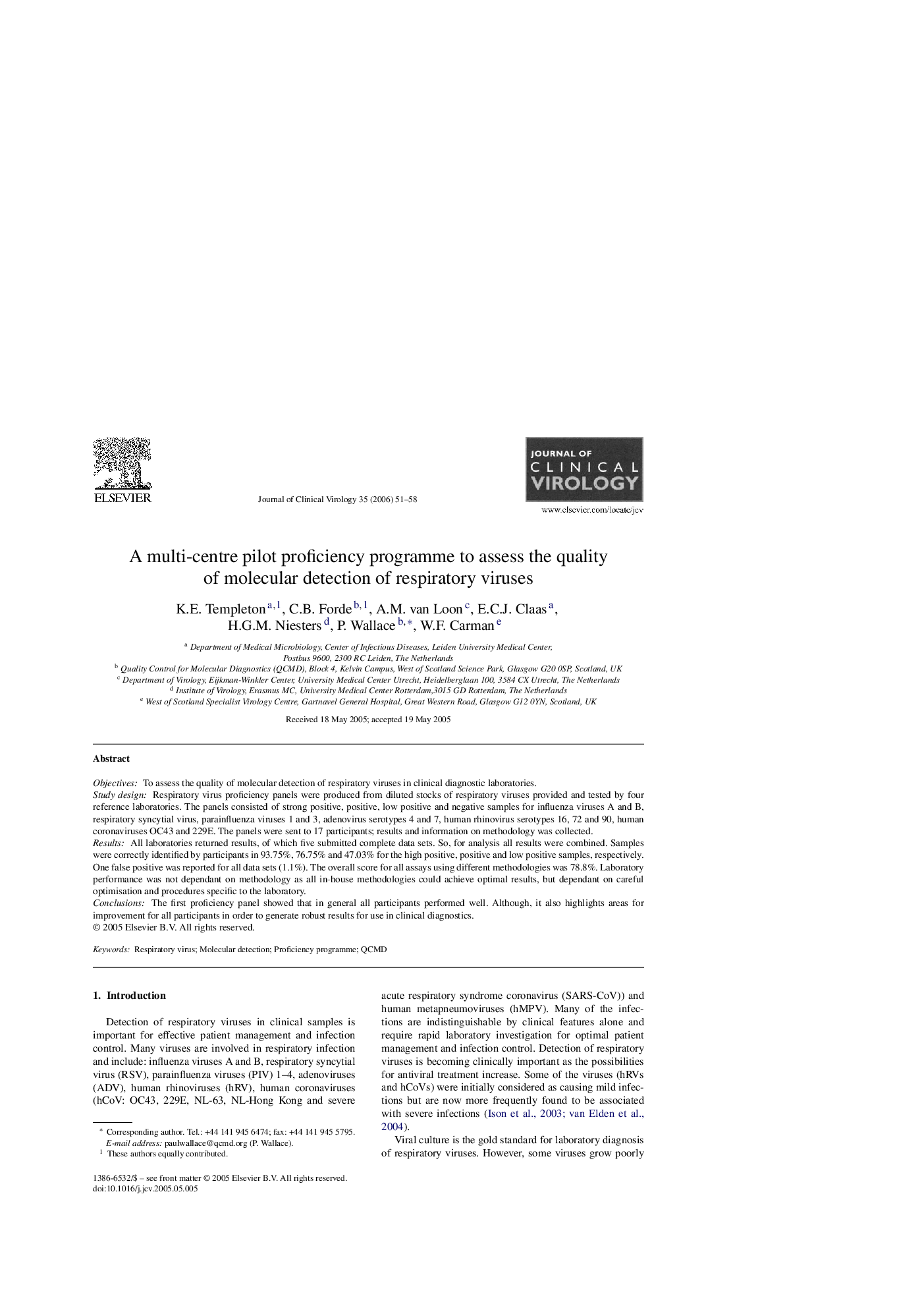| Article ID | Journal | Published Year | Pages | File Type |
|---|---|---|---|---|
| 3371346 | Journal of Clinical Virology | 2006 | 8 Pages |
ObjectivesTo assess the quality of molecular detection of respiratory viruses in clinical diagnostic laboratories.Study designRespiratory virus proficiency panels were produced from diluted stocks of respiratory viruses provided and tested by four reference laboratories. The panels consisted of strong positive, positive, low positive and negative samples for influenza viruses A and B, respiratory syncytial virus, parainfluenza viruses 1 and 3, adenovirus serotypes 4 and 7, human rhinovirus serotypes 16, 72 and 90, human coronaviruses OC43 and 229E. The panels were sent to 17 participants; results and information on methodology was collected.ResultsAll laboratories returned results, of which five submitted complete data sets. So, for analysis all results were combined. Samples were correctly identified by participants in 93.75%, 76.75% and 47.03% for the high positive, positive and low positive samples, respectively. One false positive was reported for all data sets (1.1%). The overall score for all assays using different methodologies was 78.8%. Laboratory performance was not dependant on methodology as all in-house methodologies could achieve optimal results, but dependant on careful optimisation and procedures specific to the laboratory.ConclusionsThe first proficiency panel showed that in general all participants performed well. Although, it also highlights areas for improvement for all participants in order to generate robust results for use in clinical diagnostics.
